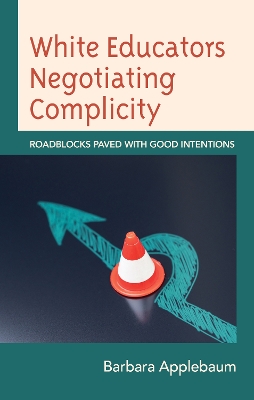Philosophy of Race
2 total works
White Self-Criticality Beyond Anti-Racism
by Rebecca Aanerud, Barbara Applebaum, Dr Alison Bailey, and Dr Steve Garner
While there is a proliferation of research studying white educators who teach courses around anti-racism, White Educators Negotiating Complicity: Roadblocks Paved with Good Intentions focuses on white educators who teach about whiteness to a racially diverse group of students and who acknowledge and attempt to negotiate their complicity in systemic injustice. Scholars continue to remind white people of a paradox that in their endeavors to disrupt systemic white supremacy, they often reproduce it. Barbara Applebaum explores what it means to teach against whiteness while living that paradox.
Rather than an empirical study, this book applies insights from the recent scholarship in critical whiteness studies and around epistemic injustice to some of the most trenchant challenges that white educators face while trying to teach about whiteness to a racially diverse group of students. Applebaum illuminates what theory can tell us about praxis and introduces the concept of a vigilantly, vulnerable informed humility that can offer guidance for white educators in their attempts to negotiate the effects of white complicity on their pedagogy.

